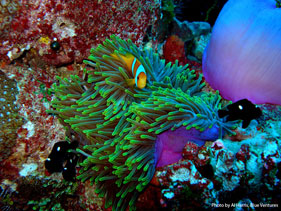Experts call on politicians to help protect ocean life
More than 245 marine scientists have called for the establishment of a worldwide system of large and highly-protected marine reserves in order to protect sea life.
Their statement did not specifically make reference to recreational yachting, but it is possible that anchoring could be outlawed in the marine reserves, especially where coral reefs are prominent.
Scientists, from 35 countries, including the UK, signed a statement issued by Global Ocean Legacy as part of World Oceans Day, which said the marine reserves are ‘an essential and long overdue contribution to improving stewardship of the global oceanic environment’.
Less than 0.5 percent of the world’s oceans are fully protected from extractive or destructive activities and marine reserves have been shown to blunt the effects of excessive commercial fishing by offering sea life a refuge to breed and spawn.
Because the ecosystems in ocean reserves are healthier, they are also more resistant to the damage caused by pollution, climate change and a wide range of other development activities.
Earlier this year former foreign secretary David Miliband designated Britain’s Chagos Islands, an archipelago in the central Indian Ocean that covers an area twice the size of UK, the world’s largest no-take marine reserve.
One of the scientists who signed the statement, Professor Callum Roberts of the University of York, said: ‘Extensive marine reserves are essential if we are to conserve the ocean’s resources.
‘As fish stocks decline, international fishing fleets are travelling farther and farther in search of unexploited fishing grounds, which are in turn depleted after a few years. If we wish to preserve the few unspoiled areas that we have left, then we must protect them now.’
Overfishing, pollution and climate change are adversely affecting the health of the world’s oceans, and ultimately threatening the livelihoods, food security and economic development of millions of people.




